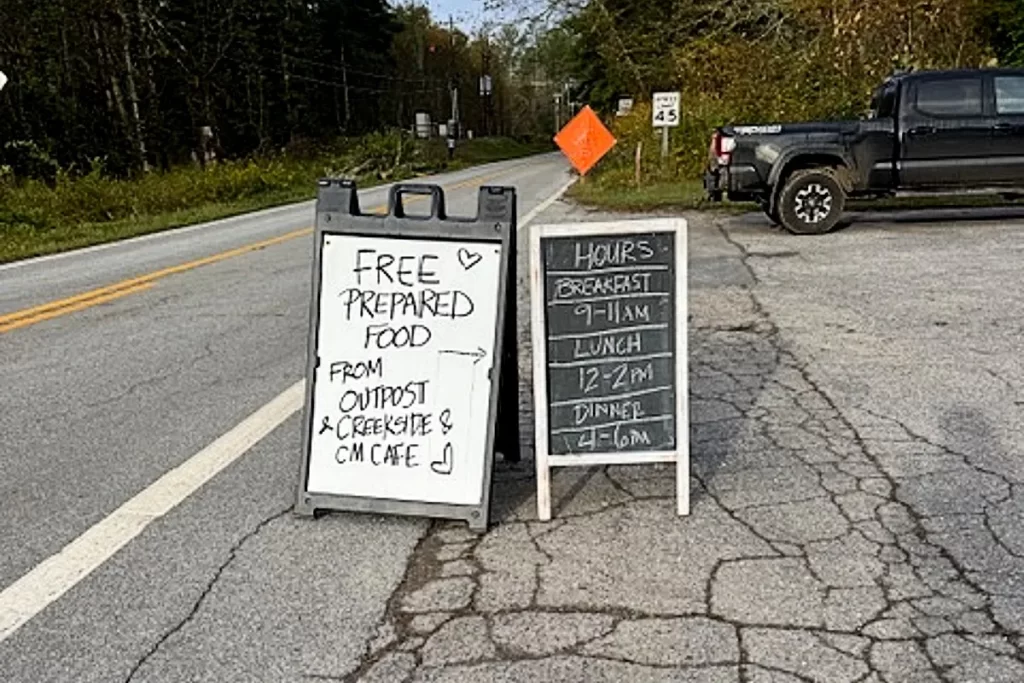
By Andy Brack | The common assumption among pundits, talking heads, influencers, water cooler chatters and many neighbors is that Americans are polarized, deeply divided into two intractable camps. It’s as if they are on opposing football teams and you can almost hear their helmets ready to crack.
 But are we making more of so-called political division than there really is? In other words, is there any “there” really there?
But are we making more of so-called political division than there really is? In other words, is there any “there” really there?
Maybe not. Just look at what’s happened in the cleanup after the devastation of Hurricane Helene. People giving aid didn’t ask whether those in need were Republican or Democratic. Gov. Henry McMaster, a Republican, warmly shook the hand of President Joe Biden when he landed in Greenville to survey damage and unleash more floodgates of federal help. People on the receiving end were thankful for the kindnesses and routinely remarked how their communities came together in new ways.
“Def loving all the good,” one North Carolina texted. “Community center feeding everyone.”
And while a new Winthrop political poll in South Carolina says 52% of South Carolina’s likely voters will cast ballots for former GOP President Donald Trump and 42% for Democratic Vice President Kamala Harris, those results are political choices – not necessarily a reflection of a society at loggerheads. In fact, 72% of respondents said they thought the South was better off as part of the United States than as a separate country – and this in the state where the Civil War started.
Analysts say we may live in a society where there is a myth of polarization – that we think we know where everybody stands, but we really don’t.
A July 2024 article in Time magazine dove into the question by looking at a 2021 survey that tried to figure out what kind of country Americans wanted to leave to future generations.
In the study, researcher Todd Rose concluded Americans think they’re divided, but are pretty bad at figuring out what other Americans really think.
His American Aspirations Index survey found “stunning agreement” on national goals across the country’s population. There was disagreement on immigration but “intense disagreement was the exception, not the rule.”
Perhaps, the Time story continues, Americans don’t really have the right idea about polarization and society: “It may not be nearly the engine we thought. It’s possible that what it produces, as much as anything, is noise.”
Just look at an Associated Press-NORC Center for Public Affairs Research poll from July. Core American beliefs, it said, are shared by a vast majority of Americans – beliefs in the rights of equal protection under the law, the right to vote, freedom of speech, the right to privacy, freedom of religion, the right to assemble peacefully – and even the freedom of the press.
And a review of studies on polarization by the Carnegie Endowment for International Peace seems to point blame at politicians on both sides for fueling ideological perceptions of polarization – that they intentionally ratchet up heat on political issues to score points. And part of the blame is the media that spread the mess.
“The American public feels affectively polarized largely because of misunderstandings about the other side (though the misunderstandings seem sensitive to actual ideological differences),” the review said.
About the only meaningful conclusions to draw from all of this seem to be:
- Think for yourself.
- Look inside your heart to check to see if what they’re saying is your reality.
You probably think you are thinking for yourself, but the politicians and media are spinning you to get you to vote red or blue.
Perhaps the best thing during this election season is to look around and consider which candidates will most help your grandchildren to be educated, safe and have a good standard of living. And then take a deep breath and relax. Because, as it turns out, that’s what your neighbors, red or blue, really care about too.
Andy Brack is editor and publisher of Statehouse Report and the Charleston City Paper. Have a comment? Send to: feedback@statehousereport.com



Thanks for this. People need to hear it.
From what I see in the state is that it is not Republicans vs. Democrats it is good vs. evil.There is plenty of evil to go around both sides.
You’re insight is so appreciated!!!